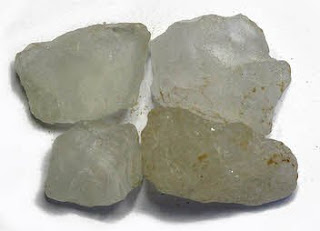10 Efficient Natural Remedies for Malaria
Malaria is a mosquito-borne infectious disease affecting humans and other animals caused by parasitic protozoans (a group of single-celled microorganisms) belonging to the Plasmodium type. Malaria causes symptoms that typically include fever, tiredness, vomiting, and headaches.
Malaria is a mosquito-borne infectious disease affecting humans and other animals caused by parasitic protozoans (a group of single-celled microorganisms) belonging to the Plasmodium type. Malaria causes symptoms that typically include fever, tiredness, vomiting, and headaches.
Most of the home remedies and herbal treatments lack the side effects of powerful antimalarial drugs, which make them far more appealing. So let’s take a closer look at 10 of the best natural remedies for malaria.
1. Cinnamon
One of the best ways to get rid of malaria is to tackle its symptoms, namely fever, headache, and diarrhea. Cinnamon is a comprehensive remedy, as it can help improve multiple symptoms at the same time. Cinnamon has a powerful organic component, cinnamaldehyde, which has anti-inflammatory properties and has been connected to a reduction in malaria’s violent and painful symptoms.
2. Fever Nut
Another effective natural remedy for malaria is using fever nut seeds. These seeds can be obtained from any herbal store and preserved for use as and when required. Two hours before the assumed time of attack take six grams of these seeds with a cup of water, and the same dosage should be taken one hour after the attack. Whether the attack takes place or not, the same procedure should be reported.
3. Orange Juice
Vitamin C is known as an incredible immune system booster and this has certainly proven true in the treatment of malaria. Since it can be difficult to keep away from food while suffering from malaria, many people choose to go on a water and orange juice diet, to keep the body hydrated and promote a concentrated attack on the infection. The antioxidant and immune-system boosting effects of vitamin C are often enough to kick-start the recovery process.
4. Natural Diet
After you get past the liquid flush diet and have your immune system back in action, you should switch to a purely natural diet of fruits for some time. This constant burst of natural fiber and vitamins, as well as the antibacterial and antibiotic properties of fruit, will help you recover from illness and get back to living normally. Finally, adding fruits, vegetables, grains, and nuts is the final phase of a natural malaria diet.
5. Alum
Alum needs to be dry roasted and powdered. A teaspoon of this powder needs to be consumed four hours before the expected fever attack and half a teaspoon after two hours of the attack. It will give great relief from malaria.
6. Holy Basil
To reduce the symptoms and severity of malaria, people have turned to holy basil for many years; eugenol is its active ingredient, and is largely responsible for its therapeutic properties, helping to eliminate bacterial infections. Different parts of this plant are used for dozens of Ayurvedic remedies, making it extremely important in Asian countries that deal with many cases of malaria.
7. Citrus Fruits
Although this is a rather vague suggestion, citrus fruits, in general, are often recommended for the treatment of malaria. Limes and lemons are easy to get a hold of in many malaria-prone regions, and the antioxidant compounds, vitamins, and minerals in them can help eliminate fever, prevent the spread of the infection, and speed up the healing process. Mixing a few drops of lime and an entirely squeezed lemon into a glass of water is a popular approach or you can just take a bite of those healthy fruits!
8. Grapefruit
Fruit and vegetable meal plan is always great when it comes to treating the body. One of the most effective home remedies for malaria is Grapefruit. It should be consumed daily. The natural quinine-like substance can be extracted from the Grapefruit by boiling a quarter of it and straining its pulp.
9. Ginger
A common and popular treatment for malaria is the use of ginger; fortunately, ginger is easy to access and can be boiled down into a powerful decoction that will boost your immune system and help speed up the recovery process after an infection. Ginger’s active ingredient gingerol, and its unique hydrocarbons are known for their anti-inflammatory and antibacterial activities in the body, making it one of the most effective natural remedies.
10. Mosquito Avoidance
The best way to treat malaria is to never catch it in the first place, but to avoid mosquitoes in the tropical world is difficult, to say the least. Powerful bug spray (specifically those good for mosquitoes) is essential if you’re spending any time in the wilderness of these risky areas. Furthermore, you should add mosquito netting to your bed and windows, so you can sleep peacefully, knowing that you won’t wake up with any symptoms of malaria. You should also ensure that there are no large pools of standing water near your home, as they are the perfect places for mosquitoes to lay their eggs.















This short article posted only at the web site is truly good.
ReplyDeleteHello, this is fastidious post I actually loved reading this. Dr. James E. Ferguson II
ReplyDelete